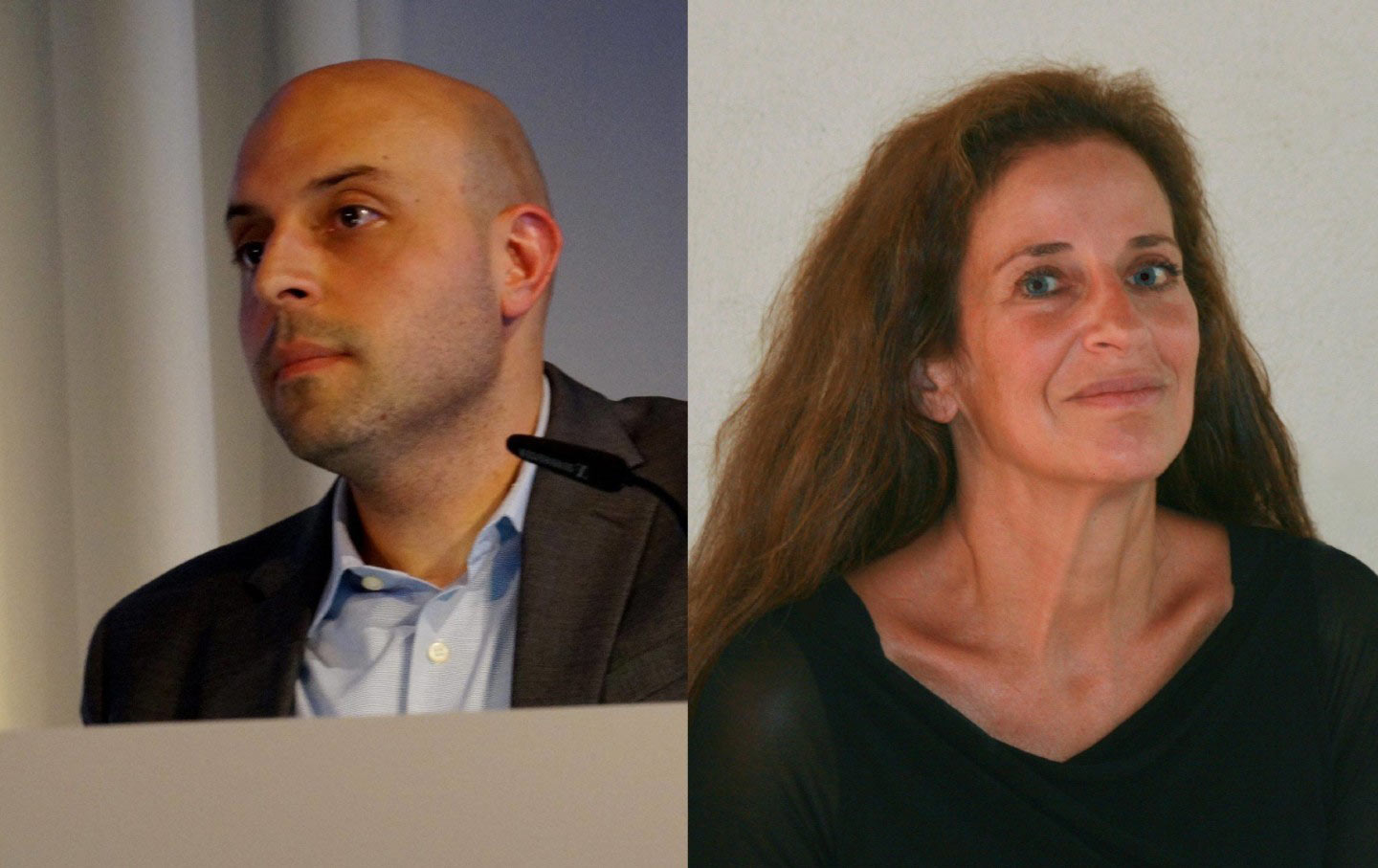/
November 16, 2023
Gazan Family Letters, 2092
1
Children feel petrified at night. Power outages most of the time. Grandfather has not left his room for 17 days. It all occurred when he looked at himself in the mirror. He could not believe he aged that much. Grandfather began to count the hairs on his head. Everything was white. We waited at his door outside and smelled something woody burning in his room. White and brownish smoke sneaked from beneath his old door. It was his cane.
2
Doves perch on the roof of our hen coop, guzzle water from rain puddles. In the neighborhood, ducks and hens pick what the wind has carried and laid on the earth: a seed, or a dried leaf, or a piece from a newspaper soaked in a child’s urine. Universities closed for a long time. Warplanes have damaged all roads, especially leading to hospitals. Mother still reads Quran every day and fasts on Mondays and Thursdays. Father plants eggplant and tomato seeds, while Mother watches through the door, muttering prayers hoping the seeds would sprout soon. Mother and Father usually share with neighbors what grows in the little garden.
And the neighbors pray, too.
3
As usual, our baby slowly opens the fridge door in the morning, grabs whatever he can carry in his small hands. He ambles down the stairs, sits in Grandma’s lap in the garden, then plays with the hose Grandpa uses to water his newly planted flowers. Did I tell you about his new flower plants? Damask rose, orchid, Aster, Black-eyed Susan, Calendula, and Marigold.
Our baby (he turns 3 next month) walks to our neighbor’s house, peeks inside to see who’s awake of the kids so he can share what he has in his small hands. Everyone’s still asleep. He returns home and waits until he hears the school bus. Out through the window, he watches the kids as they get off the bus. He walks down again and starts to mess with their bags.
4
Our neighbors sold their house. They loaded their furniture and books onto a truck, but they left the portrait of their grandfather hanging on the living room’s wall. I asked the old, wheel-chaired man, “Why did you do that?” and he said, “If we remove it, the whole house will crumple to the ground.”
5
My older brother has travelled to Europe to search for work. He is a bodybuilder. My brother has found a job. He now cleans streets and shops. Someone once asked him, “Why do you clean streets better than shops?” He said, “Because it’s where I sometimes have to sleep!”
6
I’m sorry I couldn’t send a letter for yesterday. I had trouble finding paper to write on, and I later realized my seven-year-old son had used up all of it. He had a dream the other day and tried a bunch of times to draw what he saw. He said it was a castle on the Mediterranean, but there was no water in the sea. A Coleridge of our bleak time.
7
I’ve been seeing a young man in our neighborhood dragging a suitcase. He’s never travelled before, and I think he doesn’t have the means to. I was told he lost his family in an airstrike.
I felt curious enough to ask him, “What’s inside your suitcase? It seems heavy. Why do you take it out with you every day?”
“I’m training myself to not miss my plane if I had travel. I never experienced such a thing. Inside my suitcase are some clothes of my father, mother, two sisters, and three brothers. I also have their shoes and slippers. The suitcase is their new home and I want to put it in a safe place. And I also have my father’s favorite books, mainly poetry books and short stories. He never had the chance to finish a novel. You know, wars and work.”
I looked around us and I could see the roads marred by the wheels of his suitcase. His house still remains a heap of rubble, like a fallen tent made of ragged cloth.
Mosab Abu Toha
Mosab Abu Toha is a Palestinian poet, short story writer, and essayist from Gaza. His collection Things You May Find Hidden in My Ear was a finalist for the National Book Critics Circle Award and won a Derek Walcott Poetry Prize and an American Book Award.
More from The Nation
The Moral Triangle: Palestine, Israel, and Germany
The Moral Triangle: Palestine, Israel, and Germany
A conversation about “peace and justice and freedom for all Palestinians and Israelis” with Sa’ed Atshan and Katharina Galor.
The History of Equality: It’s Complicated
The History of Equality: It’s Complicated
A conversation with the historian Darrin McMahon about his new book Equality: The History of an Elusive Idea and the strange and contradicting development of the liberal version o…
The Bipartisan Attack on Public Schools
The Bipartisan Attack on Public Schools
In New Jersey, liberal and conservative forces poured resources into the charter school movement. This effort helps explain the woes of the public school system in the country.
The Body in Fragments
The Body in Fragments
The Misunderstood History of American Wrestling
The Misunderstood History of American Wrestling
A recent biography of WWE executive Vince McMahon presents him as an entertainment tycoon who changed culture and politics. The real story of his rise is as banal as it is brutal….
Wang Bing, the World’s Hardest-Working Director
Wang Bing, the World’s Hardest-Working Director
In his new film, Youth (Spring), the prolific director examines how the People’s Republic became the workshop for much of the world.
